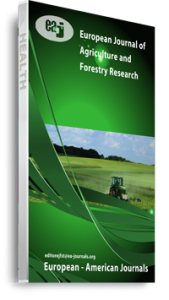Inadequate capital and lack of improved technology for cassava processing have become major challenges in the development of the agricultural sector of the Nigerian economy. This had prompted this study on the analysis of processing of cassava tubers into garri in Isoko north local government area of Delta state, Nigeria. Cross sectional data were collected using purposive and simple random sampling techniques with the aid of well-structured questionnaire for the 2012 processing season. Purposive sampling technique was used to select six towns from the study area based on their involvements in cassava processing activities. Thereafter ten (10) respondents were randomly selected from each of the towns making a total sample size of sixty (60) respondents. Data were analyzed using simple descriptive statistics such as mean, frequency distribution, percentages and inferential statistics including gross margin and regression analysis. The results showed that 95% of the respondents were females. the highest proportion (38%) of the respondents were within the age group of 50>60 years and 33% had secondary school leaving certificates, 75% of the respondents were married and 58% had household size within the range of 5>8 persons, 66% of them were into cassava processing on part-time basis, while 33% had 11 > 15 years of processing experience and 67% of them used family labour. The estimated annual total revenue was N610,000, total variable costs was N370,000 and the gross margin was N240,000 per annum per respondent which represented 64.86% of the total variable cost of production. The implication was that for every one naira invested in the processing of cassava, the farmer gained 65 kobo. The result of the regression analysis revealed that 57% of the variability of the estimated revenue per annum (Y) was being accounted for by the independent variables in the specified model. Inadequate capital and fund, lack of improved technology, inadequate processing and storage facilities, small sized enterprises with low earnings, poor markets characterized by low pricing of products were the major constraints encountered by the processors in the industry. It was therefore recommended that credit facilities should be channeled to processors through the current micro-credit scheme of the Delta State Government, Government policies should be modified to include the provision of training programme to disseminate scientific knowledge to cassava processors, the Research-Extension Farmer linkage should be strengthened to furnish the processors with modern labour saving processing techniques, Processors should form co-operative association to establish garri- added- value- centres for improved weighing and packaging methods; Government and non-governmental organizations/agencies should assist in educating the cassava processing farmers through effective extension system on improved cassava processing technology, to bring about improved production, marketing and profitability; and in doing so, improves livelihood, income and food security of the people.
Keywords: Cassava Processors, Constraints, Delta State, Gross margin, Nigeria, Regression Analysis

